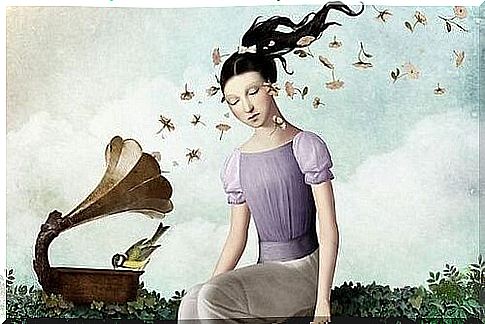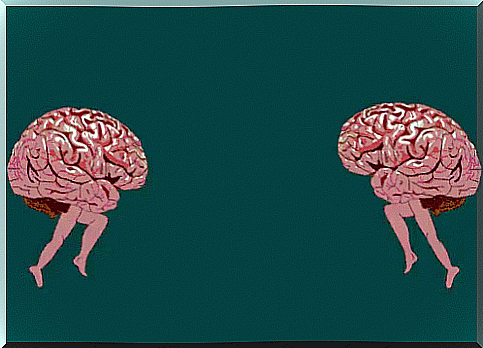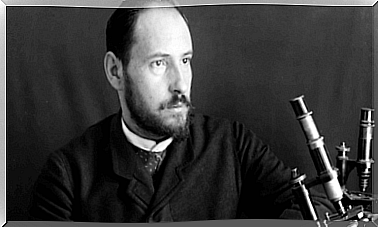Sometimes It Is Better To Take A Deep Breath And Remain Silent

They say that silence is the art that nourishes wisdom, for this reason there is often no other remedy than to resort to silence as an answer, to avoid carrying on unnecessary conversations and facts. Breathing deeply and keeping quiet is sometimes the best solution.
It is curious that psychologists and psychotherapists who work with a patient for a long time regard his silence as a significant advance in the healing process. It might seem contradictory, given that therapy is built with a powerful exchange through the word. Dialogue acts as a mediator, acts as an energy that confronts, sinks, awakens and rebuilds.
However, the sudden silence, that of the person instantly silencing and taking a deep breath, is sometimes a crucial signal. The person acquires full awareness of his emotions, he realizes something that until that moment he had not perceived. He manages to focus on the balance between thoughts and emotions and puts aside the past to really make room for the present moment.
Silence sometimes acts as an awakening of consciousness and it is an exceptional thing. It is not only used to better manage conversations or certain situations, it is also a channel with which to connect with yourself to stop “doing” for a moment and simply limit yourself to “being”.
It is a theme characterized by interesting nuances and curious aspects that can prove to be of great help in everyday life. We invite you to deepen the many aspects of silence and the art of remaining silent.

The mental noise, the noise that envelops and devours us
We live in the culture of noise. We are not talking about the pressure of ambient sounds, the persistent noise of traffic, the constant hum of factories or the echo of big cities that never sleep. We are talking about mental noise, that chaos of opposing emotions. A mental cacophony that not only prevents us from listening to those in front of us, but that often prevents us from listening to ourselves.
We are influenced by a kind of communication in which the enthusiastic voice triumphs, the one that shouts and is never silent. We hear it in our politicians, in many business meetings, where those who remain silent are immediately labeled as an indecisive person without charisma. In this sense, the essayist and journalist George Michelsen Foy conducted a study to demonstrate how in Western culture one looks with distrust or suspicion at the person who remains silent for a while before answering.
Conversations often rely on phrases or words that don’t pass through an adequate mental or emotional filter. We forget that the ability to manage language is part of the art of intelligence, where silence is often a necessary phase of transition.
Let’s stop at least for a moment to find ourselves. It is necessary to stop to see and hear the other person. So there’s nothing wrong with getting some air and staying silent in the middle of a conversation. Perhaps what we say after this break could be the solution to the problem or the key to recovering a relationship.

R.
keeping quiet and responding with silence can be a punishment
George Bernard Shaw said that “silence is the most perfect expression of contempt”. Thus, we must pay close attention to how we use silence, how we apply it based on the context and who we address it to. So far we have made it clear that silence is a perfect tool to manage your emotions, to focus on the here and now and to be able to answer or act more confidently.
The Spanish entrepreneur, researcher and philosopher Luis Castellanos talks about this topic in his book The science of positive language . Silence is a break for ourselves. Keeping quiet is necessary, for example, when we come home from work and are about to enter the house. Something as simple as taking a deep breath and being silent for a few seconds can take away the pressure and anxiety of that context that we don’t have to project into the house.
Now, one thing worth taking into consideration is that silence often refines the quality of our personal relationships. It is the words that educate, it is the words that heal and it is always the words that help us build bridges, create roots and consolidate new bonds through a positive, empathic and close language.

This is why we must be clear that silence is not a positive punishment for any child, that any bad deed, prank or mistake is not resolved by denying him the word or forcing him to loneliness in his room. These punishments only fuel anger. In these cases, communication is fundamental, essential, to change problematic behaviors, to recognize mistakes and help the child to improve.
Let’s make good use of silence, then. Let’s transform it into our palace of tranquility where we can find ourselves, where we can harmonize emotions, where to calm the mind and find the best answer, the most beautiful word to say at the right time.









